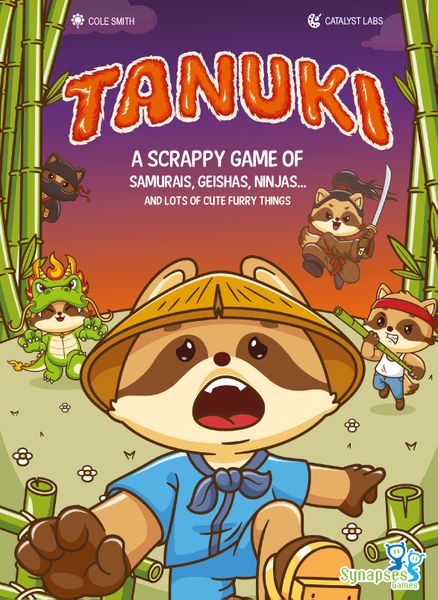Tanuki (2024) Board Game
Tanuki is a card game released in 2024 by Catalyst Labs. It is designed for 3-6 players, with a runtime of 20 minutes and recommended for ages 8 and up. The game falls under the category of card games and features a “Take That” mechanism.
Game Components of Tanuki
How To Setup Tanuki
To set up Tanuki, each player receives one Samurai card and two Gardener cards, with one Gardener face up and the other face down. The action and character cards are shuffled together, and each player is dealt a hand of three cards. The deck is then split into two halves, with a Season card shuffled into each half, and the halves are stacked together to form the draw deck. The first player is determined either randomly or by who most recently did some gardening.
Gameplay Mechanics and Game Objective
Player Experience
Tanuki is known for its quick and interactive gameplay, making it a great filler game for game nights. Players regularly steal cards and bamboo from each other, creating a dynamic and competitive atmosphere. The game is accessible to players of all ages and skill levels, with simple rules that can be quickly understood. However, the randomness of drawing cards can sometimes lead to uneven gameplay, where players who draw specific cards have an advantage.
Pros
Cons
Personal Thoughts on Tanuki
Tanuki is ideal for those looking for a quick, light-hearted game with high player interaction. It’s perfect for families or casual game nights where the focus is on fun and quick gameplay rather than deep strategy. While it may not appeal to adults seeking more complex games, it is an excellent choice for younger players or those who enjoy the ‘take-that’ genre. The game’s simplicity and cute artwork make it an enjoyable experience, especially for those who appreciate fast-paced and interactive card games.
We are supported by our audience. When you purchase through links on our site, we may earn an affiliate commission, at no extra cost for you. Learn more.

